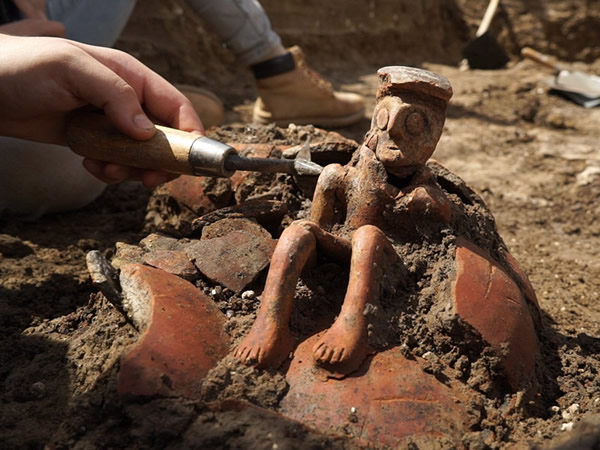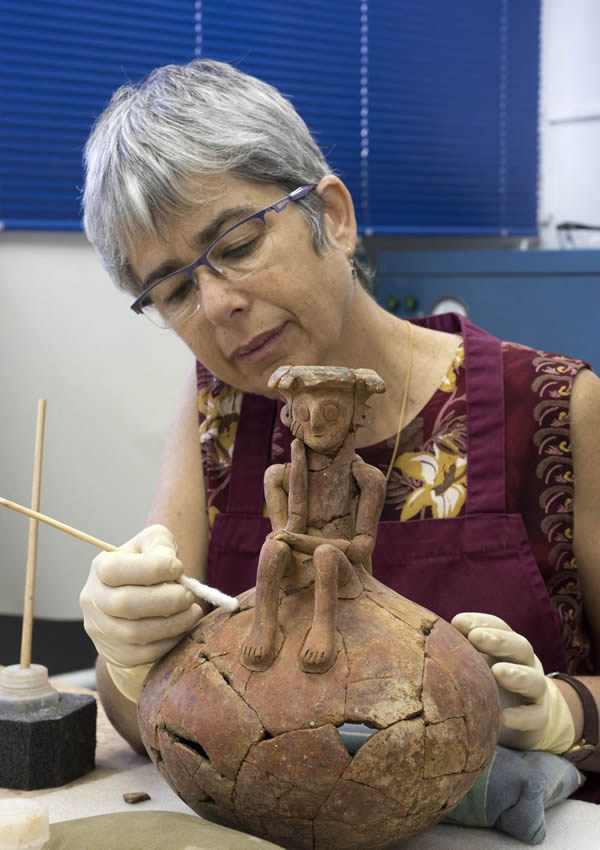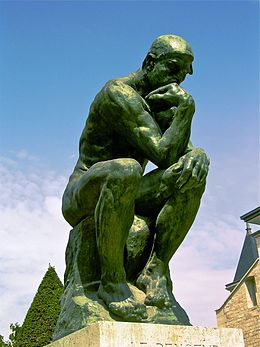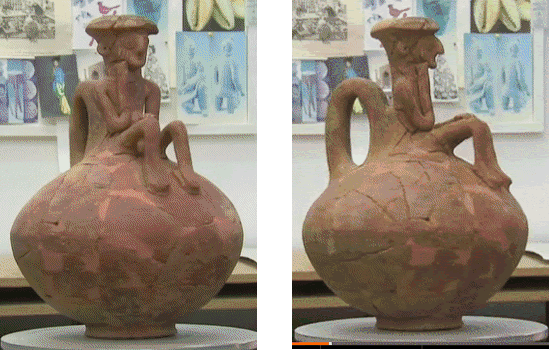The Thinker pottery jug
Middle Bronze Age - Canaan, now Israel

An highly unusual, if not actually unique, 3,800-year-old pottery jug has been discovered by an investigative team of archaeologists and high-school students working under the guidance of the Israel Antiquities Authority, which is charged with carrying out excavations at all major building sites across the country to make sure no relics are destroyed.
The discovery was actually made on the last day of planned investigations before control of a site was returned to the developers of a proposed building at Yehud in central Israel.

The restored pottery jug features a statuette, or figurine, of a person sitting with knees bent and head rested on hand giving an appearance of being deep in thought. It is clearly evident that the figurine bears a striking resemblance to The Thinker, Auguste Rodin's famous sculpture.

The thinker Pottery Jug statuette is about 7 inches (18 cm) tall, much smaller than Rodin's sculpture, which stands at around 73 inches (186 cm).
According to Gilad Itach, who directed the excavation:-
"It literally happened on the last day of the excavation when right in front of our eyes and those of the excited students an unusual ceramic vessel c. 18 cm high was exposed that
bears the image of a person. It seems that at first the jug, which is typical of the period, was prepared, and afterwards the unique sculpture was added, the likes of which have
never before been discovered in previous research. The level of precision and attention to detail in creating this almost 4,000 year old sculpture is extremely impressive. The neck
of the jug served as a base for forming the upper portion of the figure, after which the arms, legs and a face were added to the sculpture. One can see that the face of the figure
seems to be resting on its hand as if in a state of reflection. It is unclear if the figure was made by the potter who prepared the jug or by another craftsman".

Other ceramic pottery vessels and metal items such as daggers, arrowheads, an axe head, sheep bones and what are believed to be the bones of a donkey were found in the same context.
Gilad Itach said:-
"It seems that these objects are funerary offerings that were buried in honour of an important member of the ancient community. It was customary
in antiquity to believe that the objects that were interred alongside the individual continued with him into the next world. To the best of my knowledge, such a rich funerary assemblage
that also includes such a unique pottery vessel has never before been discovered in the country."
The collection of artifacts dates from a time in the Middle Bronze Age when nomadic people called Amorites were settled throughout the northern part of the Canaan region and when traders shuttled back and forth between the Levant and Egypt.
